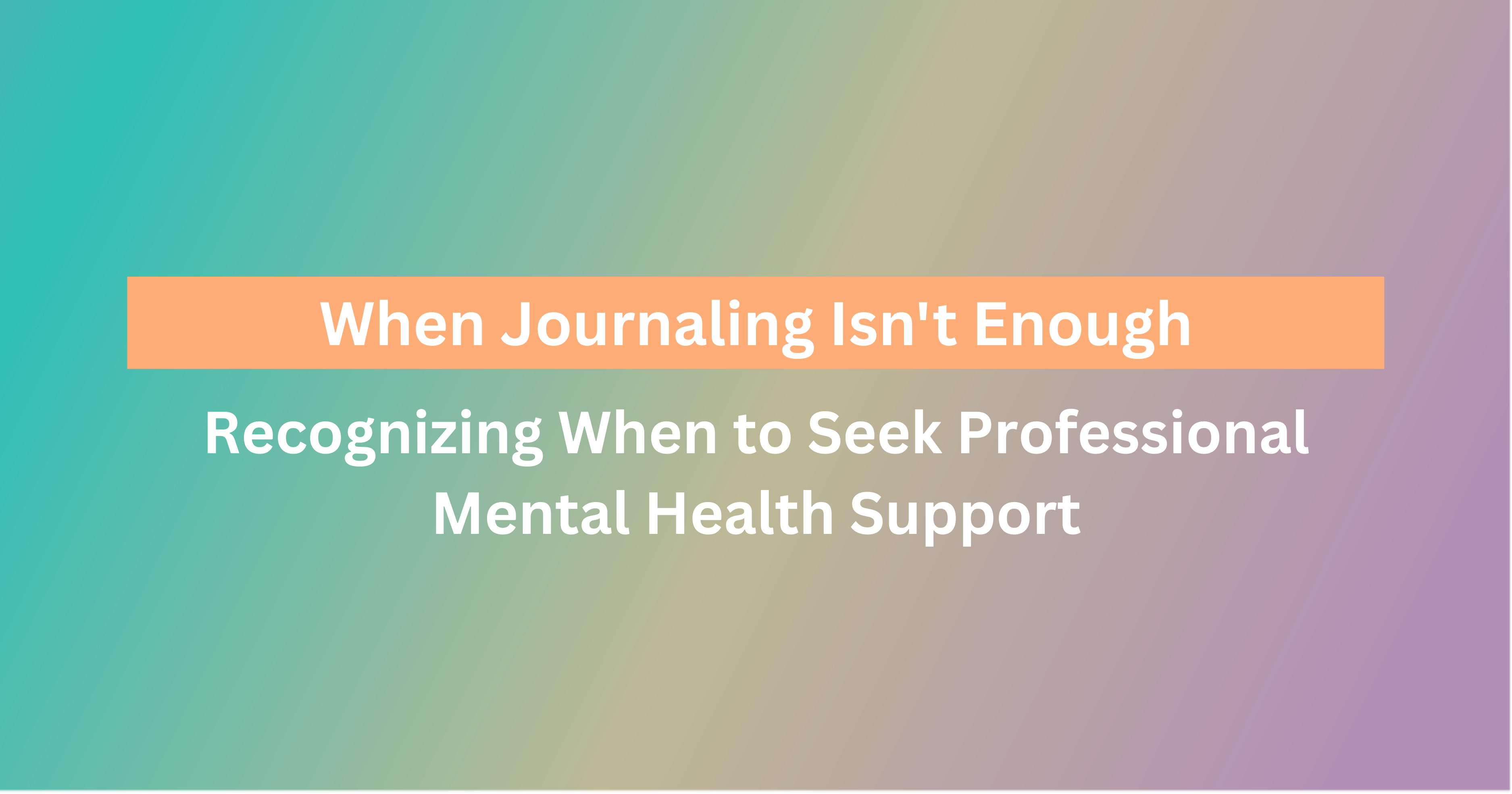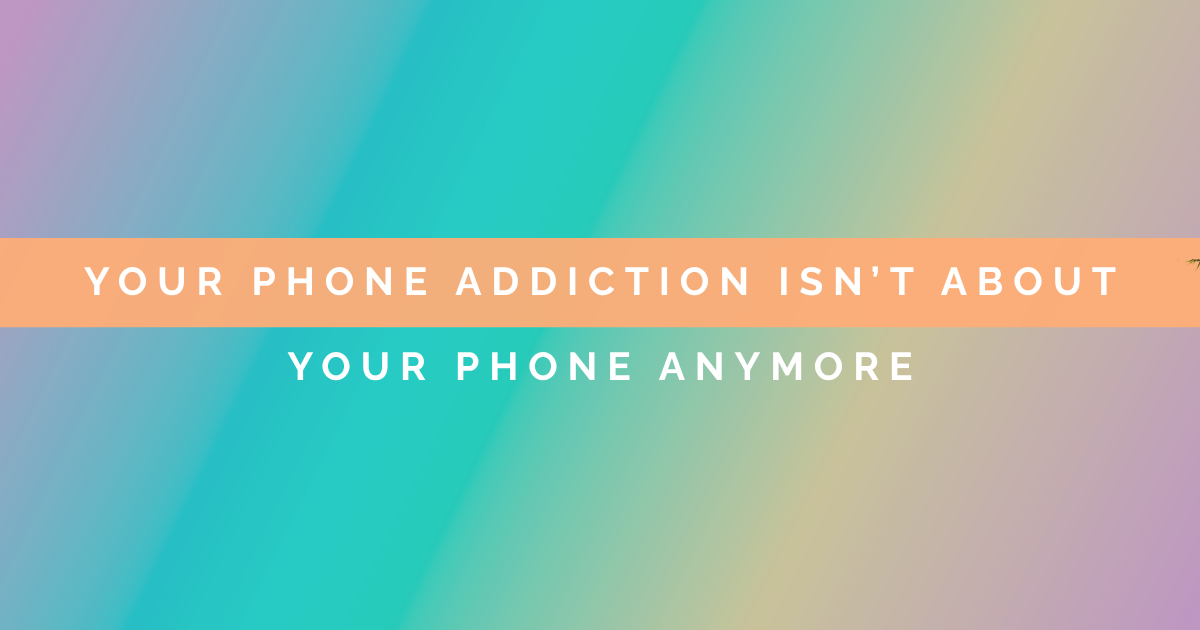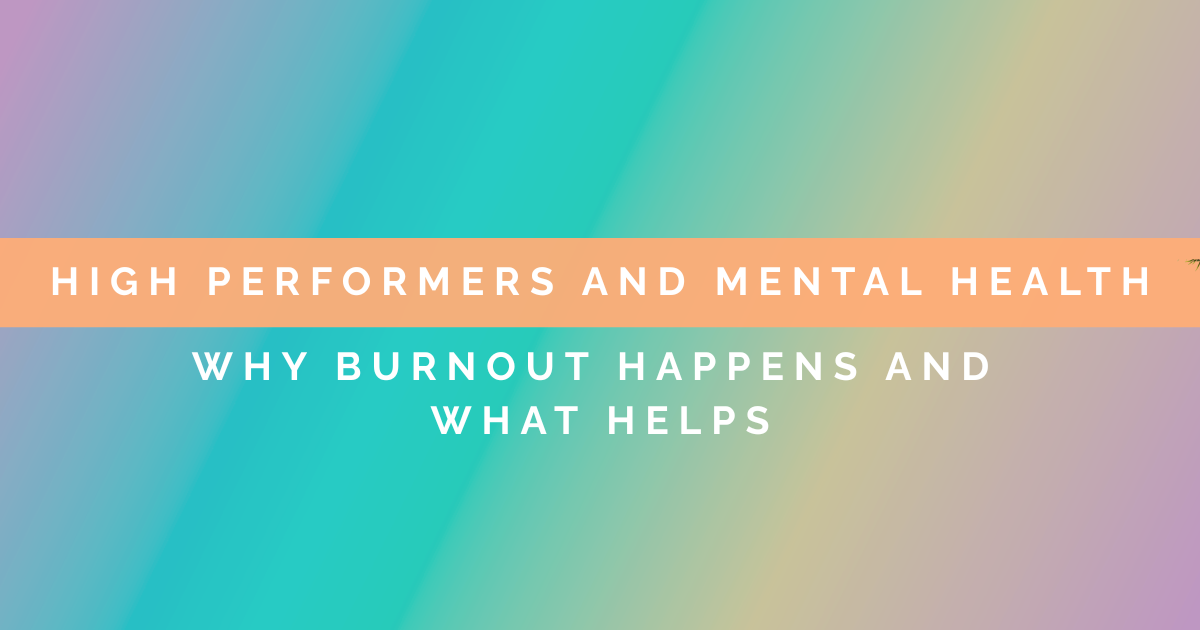People are starting to discover the powerful benefits of journaling for mental wellness, and capturing thoughts on paper often brings clarity, emotional release, and personal insights. Yet despite these significant benefits, journaling alone sometimes falls short of addressing deeper mental health needs.
Understanding when your mental health requires more than what journaling can provide represents a crucial step in your wellness journey. How do you recognize when it’s time to complement your personal reflection practices with professional guidance?
The Value and Limitations of Journaling for Mental Health
Journaling offers numerous benefits for emotional well-being. Regular journaling practice helps process experiences, identify thought patterns, track emotional triggers, and develop greater self-awareness. For many, it is a foundation for emotional regulation and personal growth.
Benefits of consistent journaling include:
- – Creating emotional distance from troubling experiences
- – Identifying negative thought patterns and cognitive distortions
- – Tracking symptoms and recognizing patterns over time
- – Setting and monitoring progress toward personal goals
- – Building gratitude awareness through positive reflection
- – Providing a private outlet for processing difficult emotions
- – Enhancing self-awareness and emotional vocabulary
However, journaling has meaningful limitations as a mental health intervention. Most significantly, it lacks the guidance, accountability, and objective perspective a trained professional provides. Without external feedback, individuals may inadvertently reinforce negative thought patterns or miss important connections between symptoms and underlying causes.
Other important limitations include:
- – Cannot provide professional diagnosis or treatment recommendations
- – May become a form of rumination rather than productive reflection
- – Offers no external accountability for implementing changes
- – Lacks specialized techniques for addressing complex conditions
- – Provides no crisis intervention during acute episodes
- – Cannot replace medication when biologically appropriate
- – Misses the therapeutic value of human connection
For many people, journaling serves as a valuable component of a comprehensive wellness approach rather than a standalone solution.
Warning Signs Your Mental Health Needs Professional Support
Recognizing when journaling and other self-help strategies no longer adequately address your mental health needs requires honest self-assessment. Certain warning signs indicate the need for professional support beyond personal reflection practices.
The following indicators suggest it may be time to seek professional mental health care:
Persistent Symptoms Despite Self-Help Efforts
When symptoms of anxiety, depression, or other mental health conditions persist for several weeks despite consistent journaling and other self-care practices, professional support likely becomes necessary. Mental health professionals can provide targeted interventions specifically designed for your situation.
Difficulty Functioning in Daily Life
Mental health challenges significantly impacting your ability to maintain relationships, fulfill work responsibilities, or complete daily tasks indicate the need for professional intervention. When emotional distress interferes with basic functioning, specialized support becomes essential.
Signs of functional impairment include:
- – Struggling to meet work or academic deadlines
- – Withdrawing from social connections
- – Neglecting personal hygiene or household responsibilities
- – Missing appointments or important obligations
- – Experiencing conflict in close relationships
- – Having difficulty concentrating on necessary tasks
- – Feeling overwhelmed by previously manageable responsibilities
Intensifying Symptoms
Mental health symptoms that worsen over time rather than improve with journaling may indicate an escalating condition requiring professional assessment. This progression often signals the need for more targeted therapeutic approaches.
Safety Concerns
Thoughts of harming yourself or others always warrant immediate professional intervention. Safety concerns represent mental health emergencies requiring prompt attention from trained specialists.
If experiencing thoughts of suicide or self-harm, contact the National Suicide Prevention Lifeline (988) immediately or go to your nearest emergency room. These resources provide immediate crisis intervention when safety is at risk.
Substance Use to Cope with Emotions
Increasing reliance on alcohol, drugs, or other substances to manage difficult emotions indicates the need for professional support. This coping mechanism often signals underlying issues requiring specialized treatment approaches.
Trauma Processing Needs
Attempting to process significant trauma through journaling alone may prove insufficient and potentially retraumatizing without professional guidance. Trauma processing requires specific therapeutic approaches that trained professionals administer to ensure safety and effective resolution.
Unproductive Rumination in Journaling
When journaling sessions consistently lead to circular thinking, heightened distress, or increased hopelessness rather than clarity or relief, professional guidance can help break unhelpful thought patterns and establish more productive reflection practices.
Overwhelming Emotions
Emotions that feel unmanageable or overwhelming despite attempts to process them through writing often benefit from therapeutic intervention. Mental health professionals provide specialized techniques for emotion regulation that complement journaling practices.
These warning signs indicate that while journaling remains valuable, incorporating professional mental health support would likely provide significant additional benefit. Recognizing these indicators represents an important step toward comprehensive mental health care.
Types of Professional Mental Health Support
Understanding the various professional mental health resources available helps determine which options best supplement your existing self-care practices. Different types of providers offer distinct approaches, specializations, and intervention methods.
Therapists and Counselors
Licensed psychotherapists, counselors, clinical social workers, and marriage and family therapists provide talk therapy focusing on emotional processing, behavior change, and developing coping strategies. These professionals typically hold master’s degrees in their fields along with state licensure.
These talking therapies effectively complement journaling by providing external feedback, specialized techniques, and guided exploration of issues identified through self-reflection. Many therapists even incorporate journaling assignments between sessions to deepen therapeutic work.
Psychiatrists
Psychiatrists are medical doctors who specialize in mental health and can prescribe medications when appropriate. They provide assessment, diagnosis, and medication management for conditions with biological components like clinical depression, bipolar disorder, anxiety disorders, and ADHD.
When journaling reveals persistent symptoms affecting daily functioning, psychiatrists can determine whether medication might help address underlying neurochemical aspects of mental health conditions. Many people benefit from combining medication with therapy and continued journaling practice.
Group Therapy
Group therapy provides treatment in a setting with others experiencing similar challenges. Led by licensed mental health professionals, these groups offer insights, support, and skill development through shared experiences and guided discussion.
When journaling highlights relationship patterns or social concerns, group therapy offers unique opportunities to explore these dynamics in real time with professional guidance. Many participants find that combining group therapy with individual journaling creates powerful synergy for personal growth.
Digital Mental Health Platforms
Modern technology enables access to mental health support through digital platforms, combining self-help tools with professional guidance. These services often incorporate journaling features alongside access to licensed therapists, creating seamless integration between self-reflection and professional support.
AI-enhanced mental health platforms provide additional benefits by analyzing journaling content to identify patterns and suggest appropriate interventions or professional resources. This technology bridges the gap between independent journaling and traditional therapy by offering insights and guidance based on personal writing.
The range of professional mental health resources available means finding support that complements rather than replaces valuable journaling practices. The goal involves creating an integrated approach addressing all aspects of mental well-being.
Finding the Right Professional Support
Once you recognize the need for professional mental health support beyond journaling, finding the right provider becomes crucial. The therapeutic relationship significantly influences treatment outcomes, making thoughtful selection essential.
Start With What You Know
Review insights gained through journaling to identify patterns, concerns, and goals that might inform your search for professional support. Your journal entries contain valuable information about recurring themes, challenging situations, and personal preferences that can guide your provider search.
Consider Practical Factors
Practical considerations significantly impact the sustainability of professional mental health support. Important factors include insurance coverage, session costs, accessibility, provider availability, scheduling flexibility, credentials, specialization, and cultural competence.
Balancing these factors with your specific needs increases the likelihood of finding sustainable professional support that effectively complements your journaling practice.
Research Provider Options
Multiple resources help identify potential mental health providers matching your needs:
- – Insurance provider directories
- – Physician referrals
- – Therapist finder tools through professional organizations
- – University or community mental health centers
- – Employee assistance programs (EAPs)
- – Mental health advocacy organization referrals
- – Digital therapy platforms and apps
- – Community support groups
- – Recommendations from trusted individuals
Each resource offers different advantages, and combining multiple search methods often yields the most comprehensive list of options.
Evaluate the Therapeutic Connection
The rapport between client and mental health professional significantly influences treatment effectiveness. During initial sessions, notice your comfort level discussing concerns, the provider’s listening skills and empathy, their ability to understand your unique situation, and how their approach complements your journaling practice.
Trust your assessment of this connection while recognizing that building therapeutic relationships takes time. If, after several sessions, the relationship feels unproductive, consider discussing concerns directly or exploring other provider options.
Integrate Professional Support With Journaling
For maximum benefit, intentionally integrate professional mental health support with ongoing journaling practice. These complementary approaches enhance each other when thoughtfully combined.
Strategies for integration include:
- – Discussing journaling insights during therapy sessions
- – Using therapy concepts as journaling prompts
- – Tracking therapy progress through journal entries
- – Bringing specific journal entries to sessions when relevant
- – Following therapist recommendations for structured journaling exercises
- – Using journaling to prepare for and process therapy sessions
- – Creating action plans in therapy and monitoring implementation through journaling
Finding the right professional support represents an important investment in your mental health journey. While the process requires effort, the potential benefits of combining effective journaling practice with appropriate professional guidance create powerful opportunities for healing and growth.
The Complementary Power of Professional Support and Journaling
Rather than viewing professional mental health support as replacing journaling, consider how these approaches work together, each addressing different aspects of mental wellbeing. This complementary relationship creates synergies beyond what either approach achieves independently.
Guided Self-Discovery
Professional support provides structured guidance for the self-discovery process begun through journaling. Therapists offer frameworks, questions, and perspectives that deepen personal insights while preventing unproductive rumination.
When journaling identifies recurring negative thoughts, for example, a therapist might introduce specific techniques for evaluating and challenging those thoughts. This guidance transforms general awareness into targeted skills for cognitive restructuring.
Accountability and Progress Tracking
Professional support creates accountability that accelerates progress beyond what journaling alone typically achieves. Regular sessions establish expectations for implementing insights and practicing new skills, while providing structured evaluation of progress over time.
Specialized Techniques for Specific Challenges
Mental health professionals provide evidence-based techniques for addressing specific conditions that journaling might identify but cannot fully resolve. These specialized approaches target particular symptom patterns with interventions proven effective through clinical research.
Examples include exposure therapy for anxiety disorders, behavioral activation for depression, skills training for emotion regulation difficulties, trauma processing protocols, social skills training for relationship challenges, and cognitive remediation for attention difficulties.
Objective Perspective and Feedback
Professional support offers an objective perspective that complements the inherently subjective nature of personal journaling. Therapists recognize patterns clients might miss, challenge unhelpful narratives with compassion, and provide feedback grounded in clinical expertise.
This objective feedback helps develop more balanced perspectives than journaling alone typically produces, particularly regarding self-assessment and relationship dynamics.
Crisis Management and Safety Planning
Mental health professionals provide crucial intervention during crisis periods that journaling cannot adequately address. When journaling reveals safety concerns or acute symptom escalation, professional support offers immediate stabilization strategies and appropriate referrals when needed.
The complementary relationship between journaling and professional support creates a comprehensive approach to mental health that leverages the strengths of both strategies. This integration supports sustainable progress while providing flexibility to address changing needs throughout the wellness journey.
Taking the First Step Toward Professional Support
Deciding to supplement journaling with professional mental health support represents a significant step in your wellness journey. This transition often brings mixed emotions; understanding the process helps manage these feelings while moving forward with confidence.
Acknowledge the Courage Required
Seeking professional mental health support requires genuine courage. Cultural stigma, financial considerations, and personal vulnerability concerns create real barriers that many people hesitate to cross. Recognizing the strength involved in taking this step honors the significant decision you’re making.
Start With a Manageable Step
Breaking the process into smaller actions makes seeking professional support less overwhelming. Instead of focusing on beginning therapy as a major life change, concentrate on the next specific step, such as reviewing insurance coverage, researching potential providers, making a consultation call, or speaking with your primary care doctor about recommendations.
Prepare for the First Appointment
Initial mental health appointments typically involve assessment and relationship building. Preparing relevant information helps maximize this time while reducing anxiety about the unknown.
Consider bringing notes about current concerns, relevant journal entries (if comfortable sharing), information about current coping strategies including journaling, and questions about the provider’s approach.
Remember Integration Rather Than Replacement
Seeking professional support doesn’t mean abandoning journaling or other helpful self-care practices. Instead, view professional guidance as enhancing and expanding your existing wellness toolkit, providing additional resources for flourishing.
Many therapists actively encourage continued journaling, sometimes suggesting specific writing approaches complementing therapeutic work. This integration creates synergy between personal reflection and professional guidance, maximizing benefits from both approaches.
Taking the step toward professional mental health support demonstrates commitment to comprehensive wellbeing. This action honors both the value of journaling and its natural limitations, creating space for additional growth through guided exploration and specialized intervention.
Ready to explore how technology can help bridge your journaling practice with professional mental health support? Discover how Theryo’s collaborative AI-powered platform analyzes journal content to provide personalized insights while connecting with licensed professionals when needed.
Frequently Asked Questions About Journaling and Professional Mental Health Support
1. Can journaling replace therapy or other professional mental health treatment?
Journaling offers valuable benefits for mental wellness, but it cannot replace professional treatment for significant mental health concerns. While journaling helps process emotions and increase self-awareness, it lacks the external perspective, specialized techniques, and clinical expertise that mental health professionals provide. Optimal outcomes often result from combining personal reflection practices like journaling with appropriate professional support.
2. How do I know if my journaling practice is helping my mental health?
Effective journaling typically produces noticeable benefits including emotional clarity, reduced rumination, increased self understanding, and improved ability to identify thought patterns affecting mood. Conversely, signs that journaling might not be helping include feeling consistently worse after writing, becoming stuck in circular negative thinking, or obsessively revisiting painful memories without resolution. If journaling regularly increases distress without subsequent relief, consider discussing your approach with a mental health professional.
3. What types of journal entries might indicate I should seek professional support?
Journal content potentially indicating the need for professional help includes persistent expressions of hopelessness, repeated descriptions of the same problems without progress, entries focusing on self-harm or suicide, documentation of functioning difficulties, consistent extreme emotional language, or writing reflecting significant sleep disturbances. While occasional difficult entries remain normal, patterns of these concerning themes over weeks suggest professional support would likely provide significant benefit.
4. How might a therapist use my journaling practice as part of treatment?
Many therapists incorporate journaling into treatment plans, viewing personal writing as a valuable extension of therapeutic work. They might suggest specific journaling exercises targeting particular challenges, request journal entries about topics discussed in sessions, or recommend structured writing between appointments. This integration creates continuity between sessions while providing concrete material for therapeutic discussion.
5. How do I find a mental health professional who values and incorporates journaling?
Consider specifically mentioning your journaling practice when researching potential providers. During initial consultations, ask directly about their experience integrating client journaling into treatment. Therapists trained in certain modalities—including cognitive behavioral therapy, narrative therapy, and expressive arts therapy—often regularly incorporate writing exercises. Some mental health platforms specifically focus on integrating journaling with professional support.
6. What should I do if my journaling consistently makes me feel worse rather than better?
If journaling regularly increases distress without subsequent relief, consider changing your approach—perhaps implementing more structure, focusing on different topics, writing for shorter periods, or adding positive reflection components. If modifications don’t improve your experience, consulting with a mental health professional can help determine whether your current challenges require additional support beyond writing.
7. How does journaling benefit from the integration of AI technology and professional support?
Modern AI-enhanced journaling platforms create unique benefits by bridging personal reflection with professional expertise. These technologies can analyze writing patterns to identify emotional trends, recognize language potentially indicating mental health concerns, suggest personalized coping strategies, provide evidence-based journaling prompts, and connect relevant journal themes with professional support when appropriate. This technological integration offers responsive mental health support, connecting self-reflection with expert guidance when needed.







